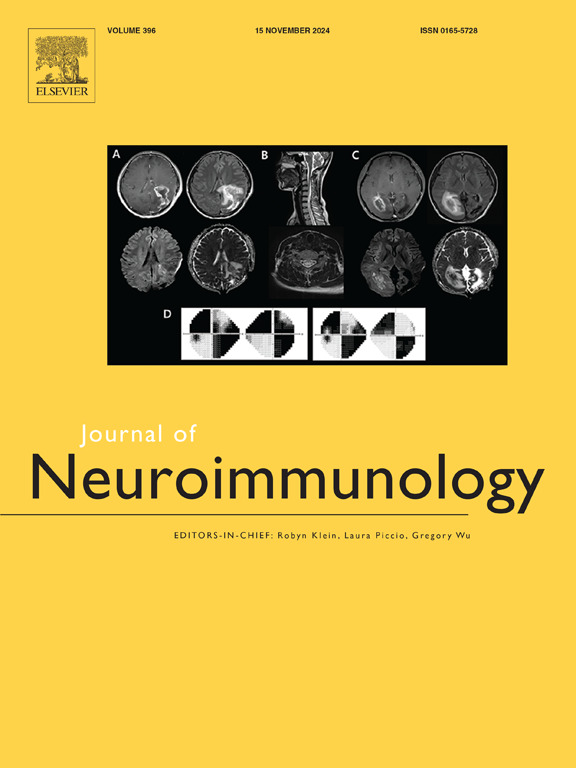May high mobility group box protein-1 be a biomarker for major depressive disorder?
IF 2.9
4区 医学
Q3 IMMUNOLOGY
引用次数: 0
Abstract
High Mobility Group Box Protein-1 (HMGB1), which has proinflammatory properties, is known to be involved in psychiatric disorders as far as we know, there are only one clinical studies investigating the role of HMGB1 in major depressive disorder (MDD). In this study, we aimed to investigate the role of HMGB1 in the etiopathogenesis of MDD and whether HMGB1 can be used as a biomarker in MDD by measuring the serum HMGB1 levels of depressed patients in the episode and remission periods. This study included 30 patients diagnosed with MDD in episode, 30 patients in remission and 30 healthy controls. Each group comprised 20 female and 10 male participants. In this study, serum HMGB1 levels were found to be lower in the patient group in the episode compared to the patient group in the remission period and the healthy control group. There was no significant difference between the patient group in remission and the healthy control group in terms of serum HMGB1 levels. The fact that serum HMGB1 levels were lower in the patient group in the episode compared to the patient group in the remission period and the control group may be related to the neuroprotective effects of HMGB1. HMGB1 may be used as a biomarker for MDD.
高迁移率组盒蛋白-1 可能是重度抑郁障碍的生物标志物吗?
高迁移率基团盒蛋白-1(HMGB1)具有促炎特性,已知与精神疾病有关,但目前仅有一项临床研究调查了 HMGB1 在重度抑郁障碍(MDD)中的作用。在本研究中,我们旨在通过测量抑郁症患者在发作期和缓解期的血清 HMGB1 水平,研究 HMGB1 在 MDD 发病机制中的作用,以及 HMGB1 是否可用作 MDD 的生物标志物。这项研究包括 30 名被诊断为 MDD 发作期患者、30 名缓解期患者和 30 名健康对照组。每组包括 20 名女性和 10 名男性参与者。研究发现,与缓解期患者组和健康对照组相比,发作期患者组的血清 HMGB1 水平较低。缓解期患者组和健康对照组的血清 HMGB1 水平没有明显差异。与缓解期患者组和对照组相比,发作期患者组的血清 HMGB1 水平较低,这可能与 HMGB1 的神经保护作用有关。HMGB1 可用作 MDD 的生物标志物。
本文章由计算机程序翻译,如有差异,请以英文原文为准。
求助全文
约1分钟内获得全文
求助全文
来源期刊

Journal of neuroimmunology
医学-免疫学
CiteScore
6.10
自引率
3.00%
发文量
154
审稿时长
37 days
期刊介绍:
The Journal of Neuroimmunology affords a forum for the publication of works applying immunologic methodology to the furtherance of the neurological sciences. Studies on all branches of the neurosciences, particularly fundamental and applied neurobiology, neurology, neuropathology, neurochemistry, neurovirology, neuroendocrinology, neuromuscular research, neuropharmacology and psychology, which involve either immunologic methodology (e.g. immunocytochemistry) or fundamental immunology (e.g. antibody and lymphocyte assays), are considered for publication.
 求助内容:
求助内容: 应助结果提醒方式:
应助结果提醒方式:


